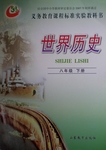题目内容
【题目】As Internet users become more dependent on the Internet to store information, are people remember less? If you know your computer will save information, why store it in your own personal memory, your brain? Experts are wondering if the Internet is changing what we remember and how.
In a recent study, Professor Betsy Sparrow conducted some experiments. She and her research team wanted to know the Internet is changing memory. In the first experiment, they gave people 40 unimportant facts to type into a computer. The first group of people understood that the computer would save the information. The second group understood that the computer would not save it. Later, the second group remembered the information better. People in the first group knew they could find the information again, so they did not try to remember it.
In another experiment, the researchers gave people facts to remember, and told them where to find the information on the computer. The information was in a specific computer folder (文件夹). Surprisingly, people later remembered the folder location (位置) better than the facts. When people use the Internet, they do not remember the information. Rather, they remember how to find it. This is called "transactive memory (交互记忆)".
According to Sparrow, we are not becoming people with poor memories as a result of the Internet. Instead, computer users are developing stronger transactive memories; that is, people are learning how to organize huge quantities of information so that they are able to access it at a later date. This doesn't mean we are becoming either more or less intelligent, but there is no doubt that the way we use memory is changing.
【1】The passage begins with two questions to ______.
A. introduce the main topic B. show the author's attitude
C. describe how to use the Interne. D. explain how to store information
【2】In transactive memory, people ______.
A. keep the information in mind
B. change the quantity of information
C. organize information like a computer
D. remember how to find the information
【3】What is the effect of the Internet according to Sparrow's research?
A. We are using memory differently.
B. We are becoming more intelligent.
C. We have poorer memories than before.
D. We need a better way to access information.
【答案】
【1】 A
【2】 D
【3】 A
【解析】
本文为议论文。文章主要讲的是互联网给人类的记忆带来的影响,互联网使用者越来越依赖互联网来储存信息,人们这样做是否会丧失记忆事物的能力呢?专家怀疑互联网可能正在改变人们的记忆内容和方式。
【1】推理判断题。根据文章第一段的句子"Experts are wondering if the Internet is changing what we remember and how."用这样的问题来导入下文两个实验要论证的主题。可知这篇文章用两个问题开始来介绍主题,故选A。
【2】推理判断题。根据文章第三段的句子"When people use the Internet,they do not remember the information.Rather,they remember how to find it.This is called “transactive memory (交互记忆)”可知在交互记忆中人们记住怎么找到信息。故选D
【3】细节理解题。根据最后一段的people are learning how to organize huge quantities of information so that they are able to access it at a later date. This doesn't mean we are becoming either more or less intelligent, but there is no doubt that the way we use memory is changing.可知我们使用记忆力的能力改变了。研究中表明互联网的影响是我们使用记忆的方法不同了.故选A
通常细节题的正确选项有以下特征:1.对原文句子中的关键词进行替换。把原文中的一些词换成意义相近的词,成为正确选项。2.词性或者语态的变化。把原文中的一些词变换一下词性,或者改变原文句子的语态,给考生制造障碍。3.语言简化。把原文中的复杂语言现象进行简化,成为正确答案。4.正话反说。把原文中的意思反过来表达而成为正确选项(适用于寻找错误选项的题目)。如第3小题,就属于第1 种,对原文的关键词the way we use memory is changing.“我们记忆的方法改变了”,也就是“We are using memory differently.” “我们的记忆方法不同了”。这是一类间接事实细节题,答案与题目在意义上运用了词义之间的转述关系,即正确选项是原文有关词语和句子的另一种表达。属于中档难度题,分数比例较大,在平时的练习中要注意同义词的转换练习。

 探究与巩固河南科学技术出版社系列答案
探究与巩固河南科学技术出版社系列答案